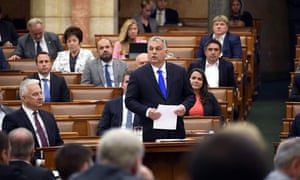
Finance Minister Nirmala Sitharaman has indicated that she cannot use up all her options in the first two months of the fiscal year, as there are many unknowns. Her strategy may be unpopular, but it is prudent.
There are three big unknowns — the spread of Covid-19 after the lockdown is lifted, the impact of its spread on the economy, and the impact of the slowdown in the economy on government revenues.
-Also watch
--
The spread of Covid-19 was contained during the lockdown, but the crisis is not over. A cure has not been found. A vaccine, despite all best efforts, will take a while to be developed and become accessible to all. Until then, as the country is opened up, strategies for containing the virus are still being put in place.
So far, even though the number of cases and deaths have risen, they are not as high as predicted without the lockdown. Now that offices, shops, buses and flights will resume, the virus will spread again. Testing of all employees in high-risk professions, isolation of citizens above 55-60 and those with co-morbidities, and social distancing norms are critical to how we contain the number of cases and deaths. The sooner these are enforced, the better we may do.
Impact on economy
The impact on the economy is difficult to quantify. This is the first time such a global lockdown has occurred since economists have been making models to forecast growth. Most models are built utilising past behaviour of the economy, but the present situation is completely unprecedented. Many economists who were forecasting a positive rate of growth when the lockdown was first announced are now forecasting a contraction. Forecasts are still being revised downwards.
There will be a loss in GDP simply due to not producing in the nearly two months. For a back-of-the-envelope calculation, look at the IIP: Industrial production contracted by 16 per cent in March this year.
The lockdown was announced on 24 March, which suggests that factories were shut for 20 per cent of the days in that month. The whole of April saw almost a complete lockdown. We expect to see a serious contraction — maybe 70 to 80 per cent, if the March figures are anything to go by. Similarly, in the month of May, production was shut for most of the month.
Seven worries for production
In addition, there are seven reasons why production will take time to bounce back fully.
First, supply chains have been broken. Even if one part is not available, has not been produced or imported, it may delay the resumption of full operations in manufacturing. As densely populated urban areas have been in red zones, they have been shut at least the third phase of the lockdown. This has disrupted many supply chains.
Second, all labourers may not come back to work. Even for the spaces where there were no restrictions, there are many anecdotes of people not coming to work after the second phase of the lockdown got over. This was partly due to fear and partly due to difficulties of travel, domestic responsibilities, or old parents at home. About 30 per cent households in India live with elders, or where at least one member of the family is above 65. These people have repeatedly been warned to keep their elders isolated. In small homes, this is difficult.
In addition there is the migrant crisis. After being unable to be with their families, many workers are heading home. It may be some time before they come back, and even then, all of them may not come back.
Third, credit will be a constraint. The government has eased liquidity and banks can give credit to their customers. However, there is an entire ecosystem of small firms who depend, not on the banking system, but on informal sources of credit. These are sometimes their suppliers or their buyers who give them working capital for purchase of raw materials or payment of wages. There are an estimated 64 million small firms in India.
The MSME package announced by FM Sitharaman is expected to give relief to 4.5 million of these. For the nearly 60 million others, adequate credit may not be available to restart production.
Fourth, travel could remain restricted, could become more expensive, and until the fear of Covid-19 remains, the impact on many sectors — like aviation, hospitality, tourism etc. — may last for a few quarters.
Fifth, consumption will take time to pick up. Incomes have been disrupted. There is uncertainty about future incomes. Until now, people were not able to step out to buy, and so, sales were stalled. But now expenditure may get postponed even after people are able to step out to buy.
Sixth, exports contracted by 60.3 per cent in April. Orders will be down until the rest of the world economy picks up. Exports depend on global demand and world trade. This is expected to be severely hit this year.
Seventh, investment was already in trouble before the Covid-19 crisis. It was going to be an uphill task to revive it. The increase in uncertainty and the difficulties of credit, labour and restrictions are going to make the investment climate worse. This could also pull down growth.
Impact on government revenue
Finally, the third big unknown is the impact the economic slowdown will have on government revenue. As I have argued before, tax revenue will decline and that leaves the government with limited fiscal space.
So far, in the economic package, the government has permitted people to delay tax payments. If the economy does not pick up, the government may need to cut tax rates, including GST, to put money in people’s hands. This may impact tax revenues further.
With the large number of unknowns, the Finance Minister’s economic package tries to push liquidity, encourage reforms and increase agricultural incomes. No doubt, more can always be done, but it is prudent not to use up all her ammunition in the first two months of such an uncertain year.
There are three big unknowns — the spread of Covid-19 after the lockdown is lifted, the impact of its spread on the economy, and the impact of the slowdown in the economy on government revenues.
-Also watch
--
The spread of Covid-19 was contained during the lockdown, but the crisis is not over. A cure has not been found. A vaccine, despite all best efforts, will take a while to be developed and become accessible to all. Until then, as the country is opened up, strategies for containing the virus are still being put in place.
So far, even though the number of cases and deaths have risen, they are not as high as predicted without the lockdown. Now that offices, shops, buses and flights will resume, the virus will spread again. Testing of all employees in high-risk professions, isolation of citizens above 55-60 and those with co-morbidities, and social distancing norms are critical to how we contain the number of cases and deaths. The sooner these are enforced, the better we may do.
Impact on economy
The impact on the economy is difficult to quantify. This is the first time such a global lockdown has occurred since economists have been making models to forecast growth. Most models are built utilising past behaviour of the economy, but the present situation is completely unprecedented. Many economists who were forecasting a positive rate of growth when the lockdown was first announced are now forecasting a contraction. Forecasts are still being revised downwards.
There will be a loss in GDP simply due to not producing in the nearly two months. For a back-of-the-envelope calculation, look at the IIP: Industrial production contracted by 16 per cent in March this year.
The lockdown was announced on 24 March, which suggests that factories were shut for 20 per cent of the days in that month. The whole of April saw almost a complete lockdown. We expect to see a serious contraction — maybe 70 to 80 per cent, if the March figures are anything to go by. Similarly, in the month of May, production was shut for most of the month.
Seven worries for production
In addition, there are seven reasons why production will take time to bounce back fully.
First, supply chains have been broken. Even if one part is not available, has not been produced or imported, it may delay the resumption of full operations in manufacturing. As densely populated urban areas have been in red zones, they have been shut at least the third phase of the lockdown. This has disrupted many supply chains.
Second, all labourers may not come back to work. Even for the spaces where there were no restrictions, there are many anecdotes of people not coming to work after the second phase of the lockdown got over. This was partly due to fear and partly due to difficulties of travel, domestic responsibilities, or old parents at home. About 30 per cent households in India live with elders, or where at least one member of the family is above 65. These people have repeatedly been warned to keep their elders isolated. In small homes, this is difficult.
In addition there is the migrant crisis. After being unable to be with their families, many workers are heading home. It may be some time before they come back, and even then, all of them may not come back.
Third, credit will be a constraint. The government has eased liquidity and banks can give credit to their customers. However, there is an entire ecosystem of small firms who depend, not on the banking system, but on informal sources of credit. These are sometimes their suppliers or their buyers who give them working capital for purchase of raw materials or payment of wages. There are an estimated 64 million small firms in India.
The MSME package announced by FM Sitharaman is expected to give relief to 4.5 million of these. For the nearly 60 million others, adequate credit may not be available to restart production.
Fourth, travel could remain restricted, could become more expensive, and until the fear of Covid-19 remains, the impact on many sectors — like aviation, hospitality, tourism etc. — may last for a few quarters.
Fifth, consumption will take time to pick up. Incomes have been disrupted. There is uncertainty about future incomes. Until now, people were not able to step out to buy, and so, sales were stalled. But now expenditure may get postponed even after people are able to step out to buy.
Sixth, exports contracted by 60.3 per cent in April. Orders will be down until the rest of the world economy picks up. Exports depend on global demand and world trade. This is expected to be severely hit this year.
Seventh, investment was already in trouble before the Covid-19 crisis. It was going to be an uphill task to revive it. The increase in uncertainty and the difficulties of credit, labour and restrictions are going to make the investment climate worse. This could also pull down growth.
Impact on government revenue
Finally, the third big unknown is the impact the economic slowdown will have on government revenue. As I have argued before, tax revenue will decline and that leaves the government with limited fiscal space.
So far, in the economic package, the government has permitted people to delay tax payments. If the economy does not pick up, the government may need to cut tax rates, including GST, to put money in people’s hands. This may impact tax revenues further.
With the large number of unknowns, the Finance Minister’s economic package tries to push liquidity, encourage reforms and increase agricultural incomes. No doubt, more can always be done, but it is prudent not to use up all her ammunition in the first two months of such an uncertain year.



